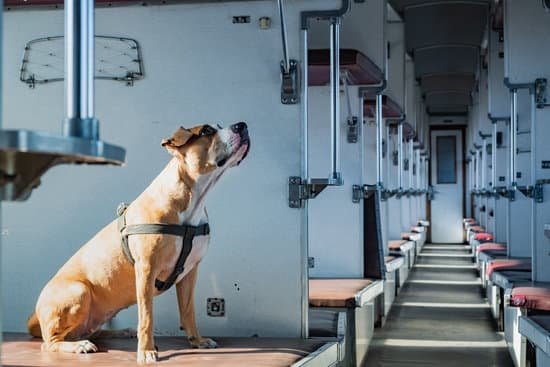Have you ever wondered, “do dog potty training sprays work“? Dog potty training sprays are becoming increasingly popular in the market as a solution for pet owners looking to effectively train their dogs.
These sprays are designed to attract and encourage dogs to use a specific spot for potty, making the training process easier and more efficient. In this article, we will explore the purpose of dog potty training sprays, their ingredients, use, effectiveness, and provide a comprehensive guide on how to use them for effective training.
Dog potty training sprays are specially formulated to aid in the process of housebreaking your pet. They contain specific ingredients that are designed to attract dogs to certain areas for elimination. The popularity of these sprays has grown as pet owners seek out effective tools for teaching their dogs where they should go potty. In this article, we will delve into the science behind how these sprays work and whether they truly deliver on their promise of successful potty training.
In addition to discussing the purpose and ingredients of dog potty training sprays, we will also explore their overall effectiveness. This includes examining the success rate of these products and whether they truly assist in training dogs to use a specific spot for elimination. By providing an in-depth analysis of this topic, pet owners can make informed decisions about whether dog potty training sprays are the right choice for their furry friends.
What Are Dog Potty Training Sprays
Dog potty training sprays are a popular tool used by pet owners to train their dogs to use a specific spot for potty. These sprays are designed to attract and encourage dogs to urinate or defecate in a targeted area, making it easier for owners to establish a designated potty area for their pets. They are formulated with special scents and ingredients that are appealing to dogs, thereby helping in the potty training process.
Ingredients and Use
Most dog potty training sprays are made with natural pheromones or synthetic scents that mimic the smell of urine or feces. These scents are meant to attract dogs and encourage them to eliminate in the desired location. Some sprays also contain enzymes that help eliminate odors and stains, discouraging dogs from re-soiling the same spot.
To use dog potty training sprays effectively, pet owners can simply spray the product on the designated potty area or on an absorbent pad. It is important to follow the specific instructions provided by the manufacturer for best results. Additionally, consistency in using the spray is key to reinforcing proper potty habits in dogs.
Purpose of Dog Potty Training Sprays
The primary purpose of dog potty training sprays is to aid in housebreaking and toilet training for puppies as well as adult dogs. By creating a specific scent-marked spot for elimination, these sprays help channel a dog’s natural instinct to relieve themselves in a particular area. This can be especially helpful for pet owners living in apartments or urban areas where access to outdoor spaces may be limited.
Some sprays also serve as behavior modification tools, helping prevent indoor accidents and marking behaviors while facilitating quicker house-training progress. However, it is important to note that individual results may vary depending on factors such as breed, age, and prior training experiences of the dog.
How Do Dog Potty Training Sprays Work
Dog potty training sprays work by using a combination of scents and pheromones to attract and encourage dogs to use a specific spot for potty. The science behind these sprays involves the use of natural or synthetic pheromones that mimic the scent markings that dogs use to communicate with each other. These pheromones signal to the dog that a particular area is an appropriate place for them to relieve themselves.
The ingredients in dog potty training sprays typically include natural or synthetic pheromones, and sometimes other scents like herbal extracts or essential oils. When sprayed on a designated potty area, these scents are designed to appeal to a dog’s sense of smell and instinctively attract them to the spot. Over time, with consistent use, the dog will recognize the scent as a cue for where they should go potty.
To further boost the effectiveness of dog potty training sprays, some products also contain special additives that help eliminate odors and discourage pets from re-soiling in the same spot. This reinforcement helps make sure that once a dog has been trained to use a specific area, they are less likely to have accidents elsewhere in your home.
Using dog potty training sprays can be an effective tool in housebreaking your pet when used correctly and consistently, but it is important to remember that every dog is different. While some may respond well to these sprays, others may not show significant improvement. Additionally, it’s recommended to combine the use of sprays with positive reinforcement techniques such as praise and rewards when your pet successfully uses their designated potty area.
Effectiveness of Dog Potty Training Sprays
Dog potty training sprays are designed to assist pet owners in house training their dogs by attracting them to specific spots for elimination. These sprays are commonly used on pee pads, artificial grass, or other designated areas where owners want their dogs to relieve themselves. The question remains, do dog potty training sprays work as intended?
The effectiveness of dog potty training sprays can vary from dog to dog. Some dogs may respond positively to the scent and pheromones in the spray, while others may not show any interest at all. Additionally, the success rate of these sprays depends on the consistency and correct application by the pet owner.
Pros of Using Dog Potty Training Sprays:
- Helps attract dogs to designated elimination spots
- Can be a useful tool for reinforcing positive potty habits
- Convenient and easy to use
Cons of Using Dog Potty Training Sprays:
- May not be effective for all dogs
- Some dogs may become desensitized to the scent over time
- Relies heavily on consistent training and reinforcement
When it comes down to it, the success of dog potty training sprays depends on various factors such as a dog’s individual preference for scents, consistency in using the spray, and reinforcement of positive behaviors. While these sprays can be a helpful tool in house training, they should be used in conjunction with other positive reinforcement and consistent training methods for best results.
Pros and Cons
Advantages of Using Dog Potty Training Sprays
One of the main advantages of using dog potty training sprays is their convenience. These sprays are easy to use and can be applied to specific spots where you want your dog to eliminate. They are also suitable for both indoor and outdoor use, making them versatile for different training environments.
Another advantage is that dog potty training sprays are designed to attract dogs to the sprayed area. They often contain pheromones or scents that mimic those found in a dog’s urine, making it more appealing for the dog to eliminate in that spot. This can be especially helpful for puppies who are still learning where to go potty.
Additionally, using a dog potty training spray can be a helpful tool for redirecting a dog’s behavior. By consistently spraying a designated area with the product, you can encourage your dog to use that spot for eliminating, ultimately reducing accidents in unwanted areas.
Disadvantages of Using Dog Potty Training Sprays
While there are benefits to using dog potty training sprays, there are also some potential drawbacks. One common disadvantage is that not all dogs may respond positively to the scent or pheromones used in these products. Some dogs may simply not be interested in eliminating in the sprayed area, which can diminish the effectiveness of the spray.
Another disadvantage is that some dog potty training sprays may contain chemicals or artificial ingredients that could potentially cause irritation or discomfort to certain dogs. It’s important for pet owners to carefully read the ingredients list before using any spray and monitor their pet’s reaction closely.
Lastly, there is a risk of dependency on the spray. In some cases, dogs may become reliant on the presence of the spray scent in order to eliminate in a specific area. This could pose challenges if you need your dog to eliminate outdoors without access to the spray, especially during travel or outings.
How to Use Dog Potty Training Sprays
Dog potty training sprays are designed to help pet owners train their dogs to relieve themselves in specific outdoor areas. These sprays are formulated with natural or synthetic scents that are designed to attract dogs and encourage them to use a particular spot for potty. But do dog potty training sprays work as effectively as they claim?
To use dog potty training sprays effectively, it’s essential to follow the correct steps. First, identify the designated area where you want your dog to eliminate. This spot should be easily accessible and should not be too close to where your dog eats or sleeps. Once you have chosen the desired location, thoroughly clean the area with water and mild soap to remove any existing odors that may distract your dog from using it.
After cleaning the area, shake the potty training spray bottle well and then apply a generous amount of the spray in the designated spot. The scent will attract your pet and encourage them to use that area for elimination. It’s important to reapply the spray regularly, especially after rainfall or frequent usage by your dog. Consistency is key when using dog potty training sprays, so be patient and persistent in reinforcing this behavior.
When utilizing this method of potty training, it’s crucial to remember that each dog is different, and individual results may vary. Some dogs may respond positively to potty training sprays and quickly learn to use the designated spot for elimination, while others may take longer or show less interest. In addition to using these sprays, combining them with positive reinforcement techniques such as treats and praise can further enhance their effectiveness.
| Pros | Cons |
|---|---|
| Attract dogs to designated areas for elimination | Effectiveness varies depending on individual dogs |
| Easy application process | May require consistent reapplication |
| Can be used in conjunction with positive reinforcement techniques | Some dogs may show little interest in the scent |
Alternatives to Dog Potty Training Sprays
When it comes to potty training your dog, there are various methods and products available aside from dog potty training sprays. While these sprays may work for some dogs, others may not respond well to them. It’s essential to explore other alternatives that may be more effective for your pet.
One popular alternative to dog potty training sprays is crate training. This method involves using a crate or kennel to confine your dog when they are not being supervised, as dogs naturally avoid soiling their living space. This technique teaches your dog to hold their bladder and only eliminate when they are taken outside.
Another effective method is using puppy pads or indoor grass patches, especially for households with limited outdoor access. Puppy pads are absorbent pads that can be placed in specific areas of the house where you want your dog to potty. Indoor grass patches provide a more natural feel for dogs who are used to eliminating on grass.
Additionally, positive reinforcement techniques such as clicker training and treats can be used in conjunction with any potty training method. Rewarding your dog for eliminating in the desired spot encourages them to repeat the behavior.
Overall, while dog potty training sprays may work for some dogs, it’s important to consider alternative methods and products based on your individual pet’s needs and behavior patterns.
| Method/Product | Description |
|---|---|
| Crate Training | A method involving the use of a crate or kennel to confine the dog when unsupervised. |
| Puppy Pads/Indoor Grass Patches | Absorbent pads or indoor grass patches placed in specific areas of the house for dogs to eliminate on. |
| Positive Reinforcement | Techniques such as clicker training and treats used as rewards for desired potty behavior. |
Conclusion
In conclusion, dog potty training sprays can be a helpful tool in the process of training your pet. These sprays are designed to attract and encourage dogs to use a specific spot for potty, which can be especially useful for indoor or apartment-dwelling dogs. While the effectiveness of these sprays may vary from dog to dog, many pet owners have reported success with using them as part of their training routine.
It’s important to keep in mind that while dog potty training sprays can be effective, they are not a guarantee for immediate success. Consistency, patience, and positive reinforcement are key factors in successfully potty training your dog. Additionally, it’s crucial to consider the unique needs and preferences of your individual pet when determining the best approach to training.
Frequently Asked Questions
How Does Anti Dog Pee Spray Work?
Anti-dog pee spray usually works by emitting a scent that dogs find unpleasant, deterring them from urinating in a specific area. Some may also contain bitter agents to discourage dogs from chewing or licking.
Is There a Scent to Encourage Dogs Peeing?
Yes, there are scents available that can encourage dogs to pee in a specific spot. These scents are typically designed to simulate the smell of urine or other markers that would naturally attract a dog to urinate in a particular area.
What Is the Best Spray for Potty Training Puppies?
The best spray for potty training puppies will depend on the specific needs and preferences of the puppy and its owner. Look for sprays that are specifically formulated for training puppies and have positive reviews from other puppy owners. Additionally, consider consulting with a veterinarian or professional trainer for personalized recommendations based on your puppy’s behavior and health needs.

Welcome to the blog! I am a professional dog trainer and have been working with dogs for many years. In this blog, I will be discussing various topics related to dog training, including tips, tricks, and advice. I hope you find this information helpful and informative. Thanks for reading!





